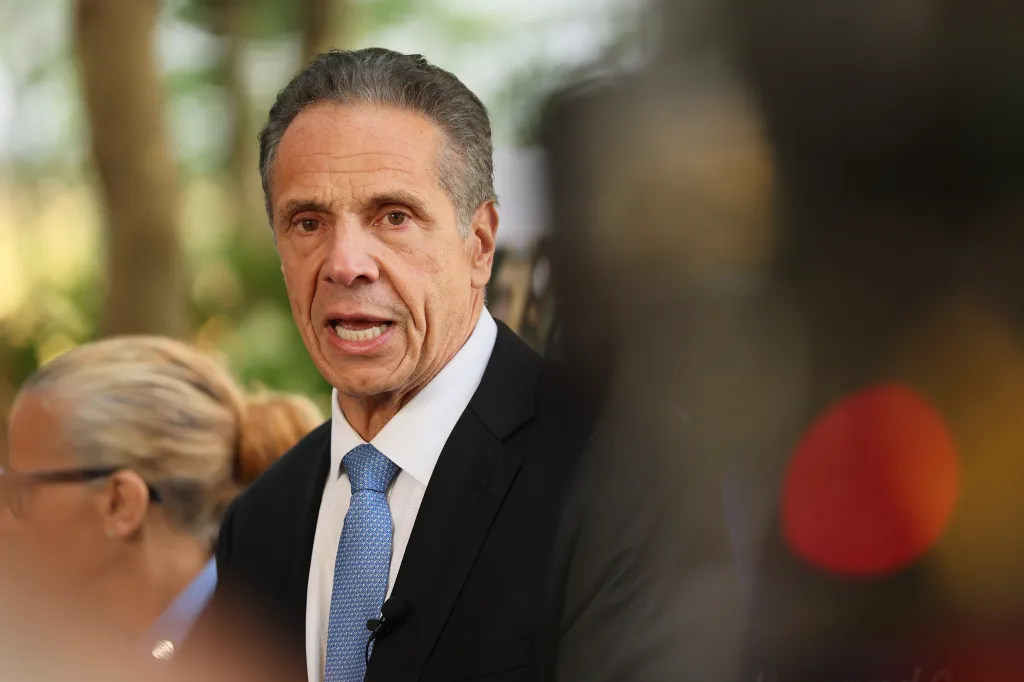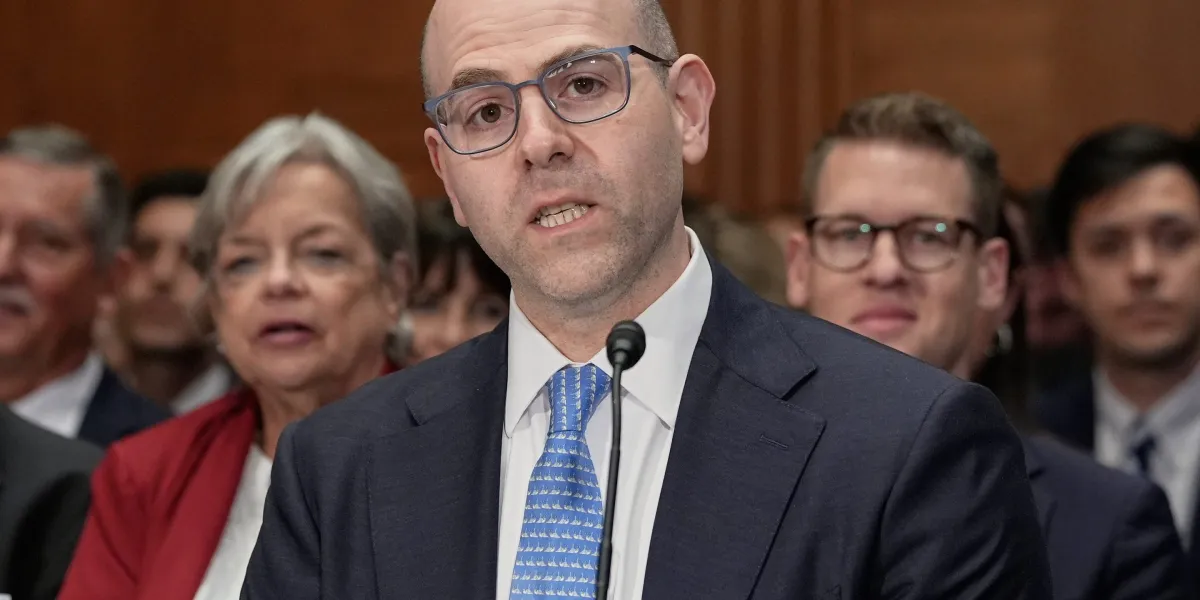By Andrew Marr
Copyright newstatesman

Were there to be a real modern British patriotism, a self-confident, robust revival of national feeling, it might emerge from this: “Enough, America, with your bad advice, casual insults, purblind history and culture wars. You are a mighty, friendly country with a vast economy. But, even during this week of the Trump state visit, please, back off a bit.”
As we contemplate the imperial progress of the Trump court, bringing its trail of digital nobility – Earl Sam Altman of ChatGPT, Duke Jensen Huang of Nvidia, the private equity and nuclear guys – to our humble province, it may seem worth putting up with the president’s provocations. In return we get investment for our talent-rich tech sector. We have some great companies and excellent software people, but right now, across the economy, we need all the help we can get.
Britain has emerged relatively unscathed from Trump’s freewheeling economic warfare on America’s traditional Western allies. A US-UK trade deal that eluded Tory governments was signed earlier this year with immediate benefits for the economy: tariffs for British car exporters dropped from 27.5 per cent to 10 per cent, and down to zero for the aerospace sector. More deals will follow this week, with Trump’s reverence for our monarchy channelled into getting them over the line.
Keir Starmer and King Charles, who both seem to understand what is required to make Trump deal fairly, may have to hold their tongues. Starmer, who sees his authority collapsing inside his government following the resignations of Angela Rayner and the aide Paul Ovenden and the sacking of Peter Mandelson, must now negotiate with Trump, a man who admires winners and reads British newspaper headlines, some of which predict the Prime Minister’s demise.
But the backdrop to this visit is a different American challenge – one that threatens our independent democracy. Hyperbolic? Perhaps, but reflect on the message broadcast by Elon Musk to the 120,000 Tommy Robinson-following demonstrators who descended on Whitehall on 13 September.
Musk began by praising Britain: “I think there’s something beautiful about being British” – a lure before his sucker-punch message that the country was being destroyed by “uncontrolled migration” that was resulting in the rape of children. He claimed to be appealing to British common sense and the reasonable centre. But there was nothing reasonable about his crucial sentence: “Whether you choose violence or not, violence is coming to you. You either fight back or you die.”
This is incitement. Starmer spoke of a battle for the soul of the nation, and asked: “Are we a country that brings people together, or pushes people apart?” The right in America blames a toxic, self-righteously furious left for creating the atmosphere in which right-wing political activists can be murdered, like Charlie Kirk was earlier this month. There’s something in that. But now the international right is doing the same thing – pleading for violence. Musk called for our democratically elected government to be pulled down. The bullhorn of American tech power blared on London’s streets.
The Robinson-led protests will be remembered by historians as a turning point for the British right. What do they mean for the boundaries of acceptable argument, and for Robinson’s feud with Nigel Farage? The latter, in announcing the defection of the Tory Danny Kruger to Reform, can boast his biggest scalp from the Conservatives yet: Kruger is a man of erudition and great ambition, not a has-been. This is a bleak moment for CCHQ.
There were fascists marching on the streets of London. But there were plenty of others too, unhappy with the scale and speed of migration. And it’s a dangerous moment. I am surrounded by friendly, hard-working Muslim neighbours, but militant, proselytising Islamism is a threat to a Britain that accepts – even celebrates – gender and sexual equality.
Britain is witnessing a militant evangelical revival in response. See the crucifixes and crusader-garbed demonstrators that swarmed over Whitehall to answer Robinson’s call. Those of us brought up on the New Testament would not call them Christian. Clearly we share these islands with many who want a race war and who are being whipped up by alien American voices with agendas of their own.
None of this is really ours. We imported hyper-liberalism, from trans-militancy to Black Lives Matter, from the US. Then we imported the backlash against it. Social media is a viciously distorted mirror of real life. Away from X and Instagram, most of us are still living in a moderate, tolerant, low-crime country. “Looking around,” as Musk demanded, that is what most of us will see. That is the experience of what he calls “the reasonable centre”. That is “British common sense”.
Do I also meet angry people, worried about their futures? Of course. Do I walk around London and see bad things? Yes: homeless encampments that probably include recent migrants, addicts and more beggars than there used to be. Do I ever feel in danger? Sometimes, as a mildly disabled man, when I’m on my phone and I see bikes sweeping towards me – but more often from Lycra-swaddled cyclists than from hooded predators.
But overall, I see more smiles than hostile stares. In the parks, I see big families of all backgrounds intermingling and enjoying what is left of the late summer. To urge violence in this world – this home – is disgraceful. If those who enjoy a live-and-let-live Britain don’t start standing up for our country, we will lose it.
Thinking of Thomas Hobbes and his war of all against all, I remember the philosopher’s warning: “Hell is truth seen too late.” To that extent, Robinson and his platoon of wrong’uns have perhaps done us a favour.
Starmer understands this, yet his authority totters. The shadow of the Mandelson scandal hangs darkly over him. Let’s be clear: he and his adviser, Morgan McSweeney, made a terrible call. If the Prime Minister had candid conversations with his colleagues now, he would find he has almost no deep allies left in the cabinet.
It’s terrible. Yet the Jenga that is top-level Westminster politics suggests Starmer may be more secure than most commentators think. Who will move against him? After the fall of Rayner, and with Andy Burnham still in Manchester, the left has no obvious candidate. Ed Miliband wouldn’t plunge the dagger, so a swift toppling of the Prime Minister would require a more right-leaning successor. For the left, at least ahead of the party conference, it’s a case of “be careful what you wish for”.
So, the right will move then? Team Blair might want to insert Wes Streeting – in my view the best-performing cabinet minister and one of few with genuine national leadership chops – before Burnham gets his chance. But, again, the timing is awkward: the Blairites are badly contaminated by the Mandelson affair and with the Labour conference coming up, this is hardly the moment for an establishment coup.
Yet when I put this to level-headed ministers, I get push-back, and the belief that Starmer, post-reshuffle, post-Mandelson, is so damaged he has simply lost his authority. “When that happens, it’s over and things start to move very quickly,” says one, predicting an early intervention by senior cabinet ministers telling him to go.
It’s important to see beyond Westminster. The more chaos at the heart of government, the more dangerous the bond markets. The Robinson march is a good reminder of how combustible the country could soon become. Vladimir Putin clearly thinks he has fooled Trump, and will be an even sharper threat this autumn. Starmer hardly has to point to MPs and ask – is this really the moment? Of course, he could decide suddenly that the game is up, although I suspect his stubbornness and patriotism would preclude resignation. But short of that, he has many cards left to play.
Even so, it’s clear that to survive, Starmer must change Downing Street. The biggest call is whether to sack McSweeney, criticised in the parliamentary party for being too factional and implicated in the Mandelson disaster. But McSweeney is both a rare electoral genius and the most eloquent strategist Starmer has. Many readers will hate me for saying so, but if he goes on Monday, Starmer is done by Tuesday.
However, the Prime Minister must use his new deputy, David Lammy, and political figures such as the new Secretary for Scotland, Douglas Alexander, to reach out to MPs with a new openness. He must bring in the politicians. There must be real contrition. Ovenden’s departure complicates matters. Starmer’s director of political strategy was respected and valued inside No 10. There was dismay among Downing Street staff that his resignation over old private messages was accepted by the PM.
Above all Labour must try to avoid civil war. It may be that Burnham would make a better prime minister. He is much more popular, more optimistic and a better communicator. But Burnham’s route back to parliament is hard, and changing a Labour leader is harder still. We are talking about the chaos of by-elections, hustings, public arguments and voting that would suck in all attention when the country needs its leaders focused on it.
The central question is whether a Burnham government, brimming with Manchester optimism, would be so effective that it could see off the right, calm the markets and win an election before 15 August 2029? Or would the struggle to get Burnham into power be so chaotic that Labour would splinter, sink and suffer a smashing defeat long before that?
Downing Street would plead for a focus on the policies such as controlling the borders, pushing down crime and delivering a Budget that doesn’t crash the economy, while looking for any deal to avoid a factional knife-fight.
It may be too late for Keir Starmer to learn politics and sharper language. On the streets, a battle for the soul of the nation is raging. We are provoked and insulted by an alien culture dividing us against ourselves. Wouldn’t it be wonderful if we stood up and fought back?
[See also: Who will be the next Paul Ovenden?]



